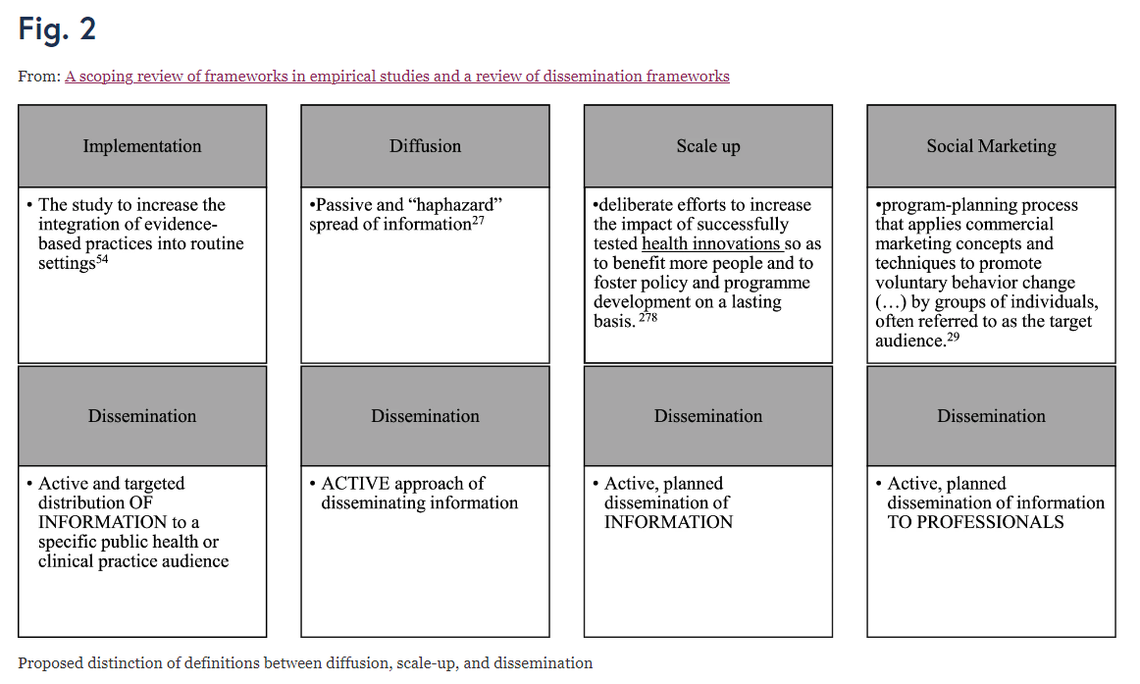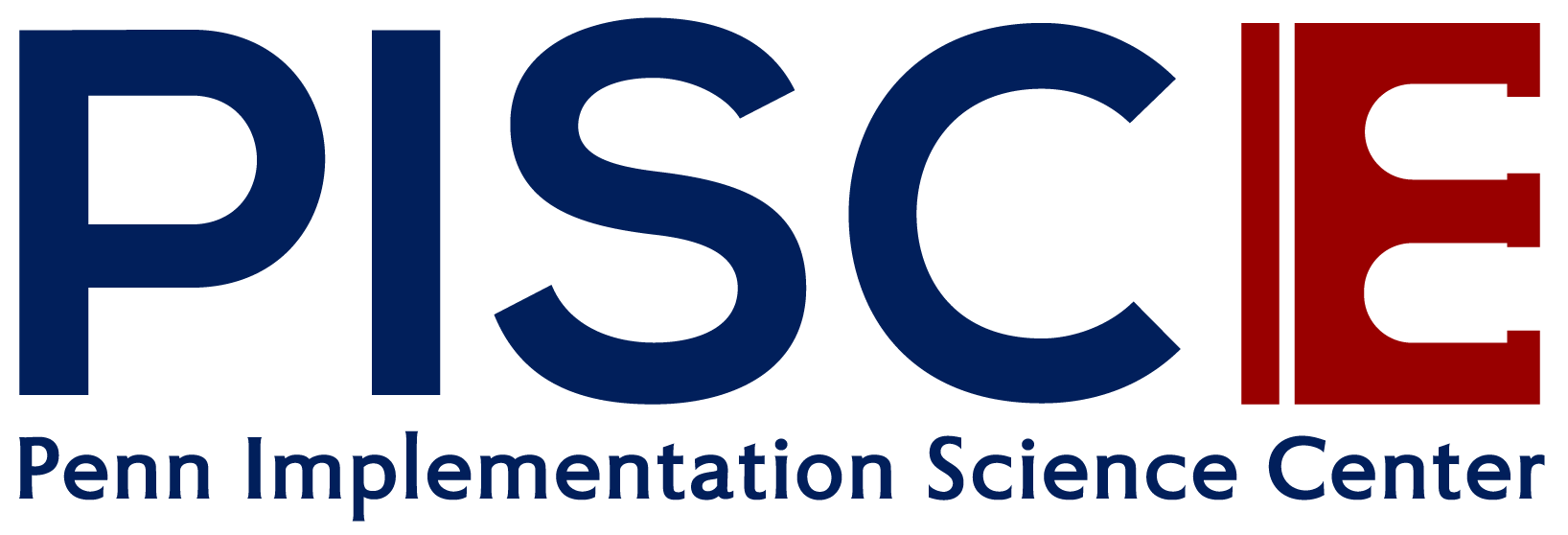Topics in Implementation Science
Behavioral science is the study of both the observable actions and mental phenomena (such as knowledge, attitudes, beliefs, motivations, perceptions, cognitions, emotions, etc.) of individuals or groups (National Institute of Health, Office of Social and Behavioral Sciences Research).
Theories of behaviour and behaviour change across the social and behavioural sciences: a scoping review.
Rachel Davis, Rhona Campbell, Zoe Hildon, Lorna Hobbs, and Susan Michie. (2018).
The behaviour change wheel: A new method for characterising and designing behaviour change interventions.
Susan Mitchie, Maartje M van Stralen, and Robert West. (2011).
Deimplementation can be defined as "discontinuing or abandoning practices that are not proven to be effective, are less effective or less cost-effective than an alternative practice, or are potentially harmful" (Walsh-Bailey, et al. 2021).
A scoping review of de-implementation frameworks and models
Callie Walsh-Bailey, Edward Tsai, Rachel G. Tabak, Alexandra B. Morshed, Wynne E. Norton, Virginia R. McKay, Ross C. Brownson, and Sheyna Gifford. (2021).
Letting Go: Conceptualizing Intervention De-implementation in Public Health and Social Service Settings
Virginia R. McKay, Alexandra B. Morshed, Ross C. Brownson, Enola K. Proctor, Beth Prusaczyk. (2018).
Evidence-based de-implementation for contradicted, unproven, and aspiring healthcare practices
Vinay Prasad & John PA Ioannidis. (2014).
Dissemination has been defined as "the active and targeted distribution of information to a specific public health or clinical practice audience" (Baumann, et al., 2022).
A scoping review of frameworks in empirical studies and a review of dissemination frameworks
Ana A. Baumann, Cole Hooley, Emily Kryzer, Alexandra B. Morshed, Cassidy A. Gutner, Sara Malone, Callie Walsh-Bailey, Meagan Pilar, Brittney Sandler, Rachel G. Tabak & Stephanie Mazzucca. (2022).

Towards the Data-Driven Dissemination of Findings from Psychological Science
Jonathan Purtle, Jacob S. Marzalik, Raquel W. Halfond, Lynn F. Bufka, Bethany A. Teachman, and Gregory A. Aarons. (2021).
Strategies for effective dissemination of research to United States policymakers: a systematic review
Laura Ellen Ashcraft, Deirdre A. Quinn & Ross C. Brownson. (2020).
Health policy research "aims to understand how policies, regulations, and practices may influence population health" (Harvard Catalyst).
Quantitative measures of health policy implementation determinants and outcomes: a systematic review
Peg Allen, Meagan Pilar, Callie Walsh-Bailey, Cole Hooley, Stephanie Mazzucca, Cara C. Lewis, Kayne D. Mettert, Caitlin N. Dorsey, Jonathan Purtle, Maura M. Kepper, Ana A. Baumann, and Ross C. Brownson. (2020).
Political Analysis for Health Policy Implementation
Paola Abril Campos & Michael R. Reich. (2019).
Improvement science is defined in The Methods and Tools of Improvement Science as "a data-driven change process that aims to systematically design, test, implement, and scale change toward systemic improvement, as informed and defined by the experience and knowledge of subject matter experts" (Lemire, et al., 2017).
Quality Improvement and Implementation Science: Different Fields with Aligned Goals
Meghan Lane-Fall & Lee Fleisher. (2018).
The Methods and Tools of Improvement Science
Sebastian Lemire, Christina A. Christie, Moira Inkelas. (2017).
"Medical education research advances the science of learning, and improves the outcomes of medical trainees and the patients they care for" (Ratelle et al., 2019).
Qualitative Research Methods in Medical Education
Adam P. Sawatsky, John T. Ratelle, and Thomas J. Beckman. (2019).
Quantitative Research Methods in Medical Education
John T. Ratelle, Adam P. Sawatsky, Thomas J. Beckman. (2019).
Conducting Quantitative Medical Education Research: From Design to Dissemination
Erika L. Abramson, Caroline R. Paul, Jean Petershack, Janet Serwint, Janet E. Fischel, Mary Rocha, Meghan Treitz, Heather McPhillips, Tai Lockspeiser, Patricia Hicks, Linda Tewksbury, Margarita Vasquez, Daniel J. Tancredi, and Su-Ting T. Li. (2018).


